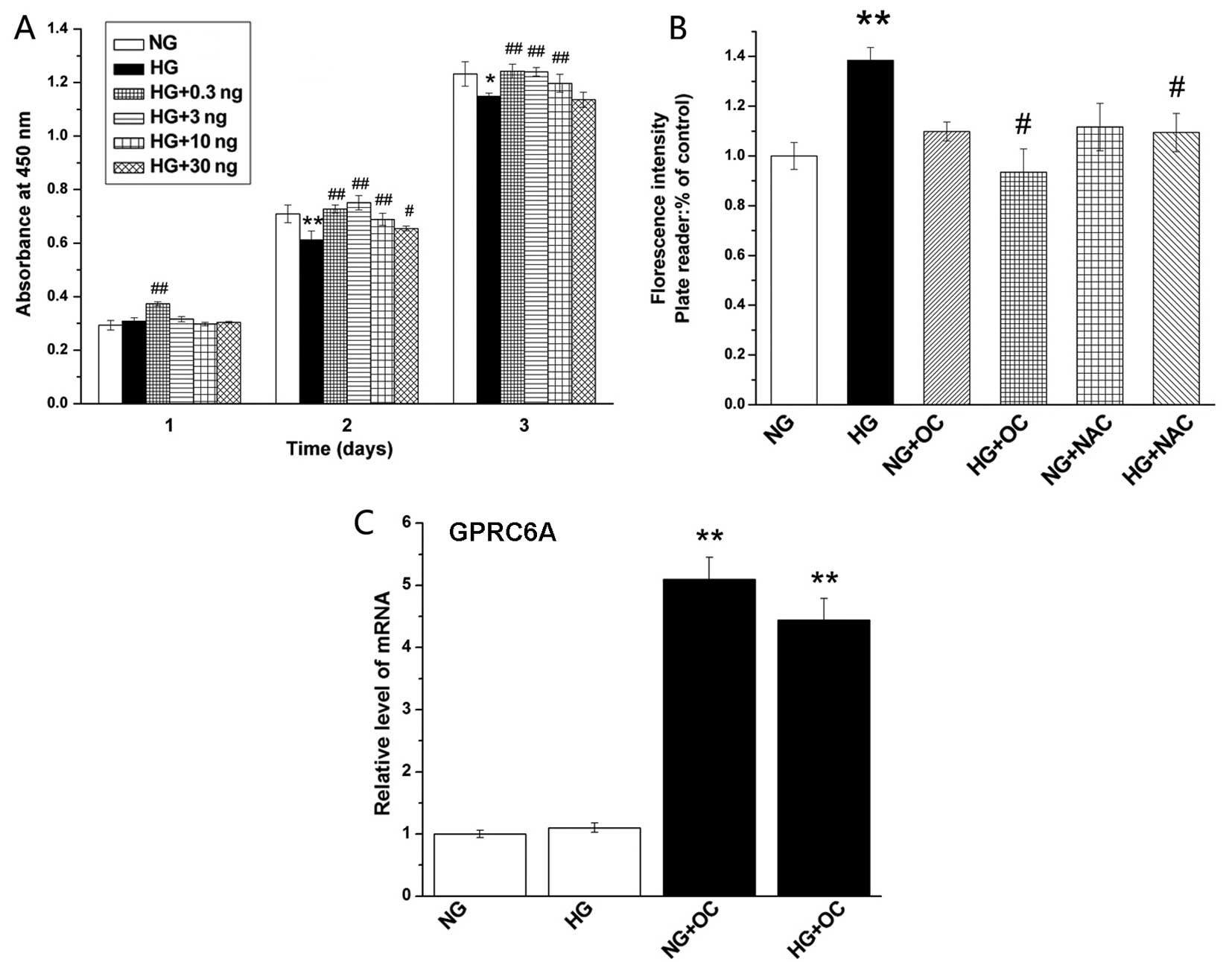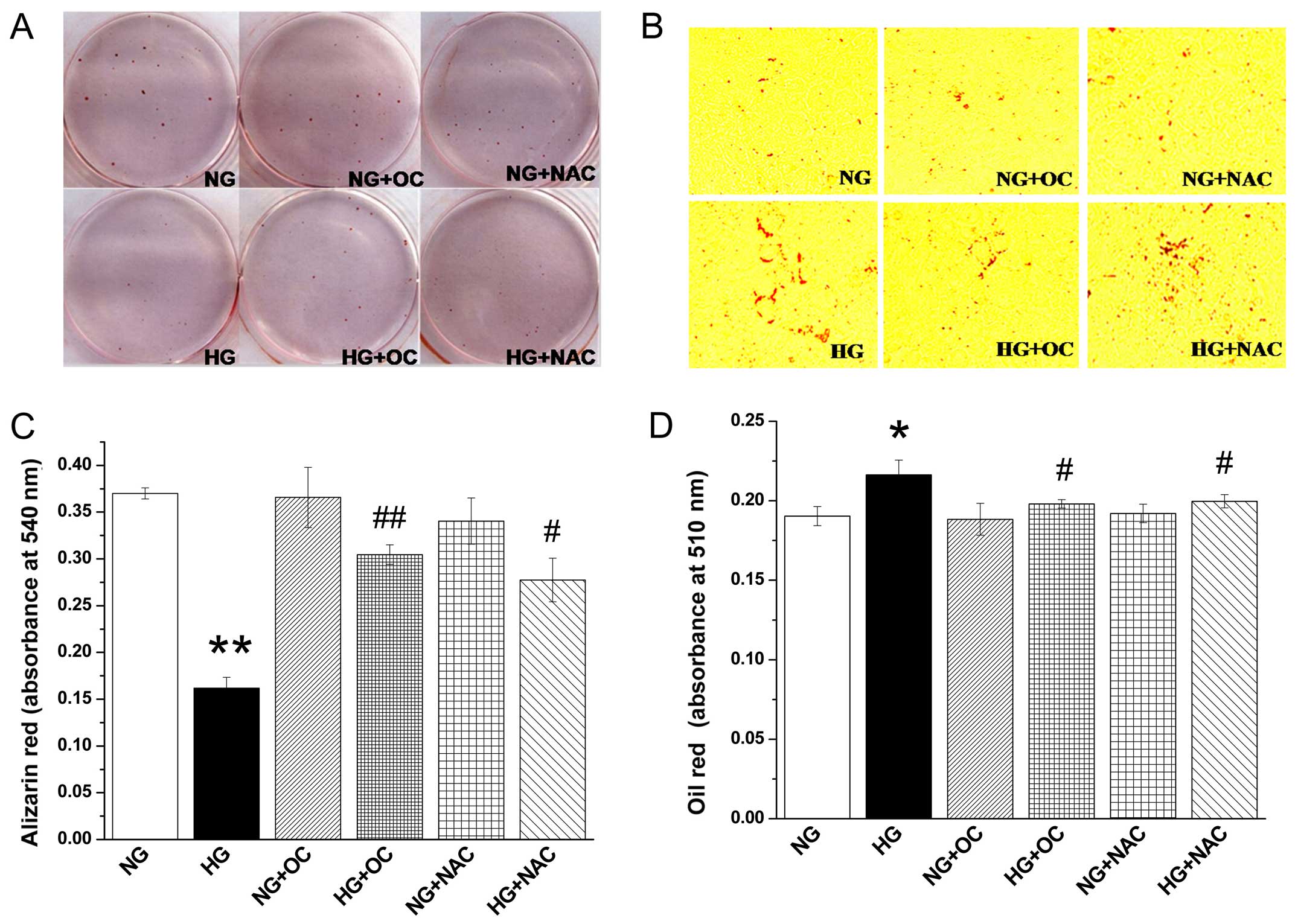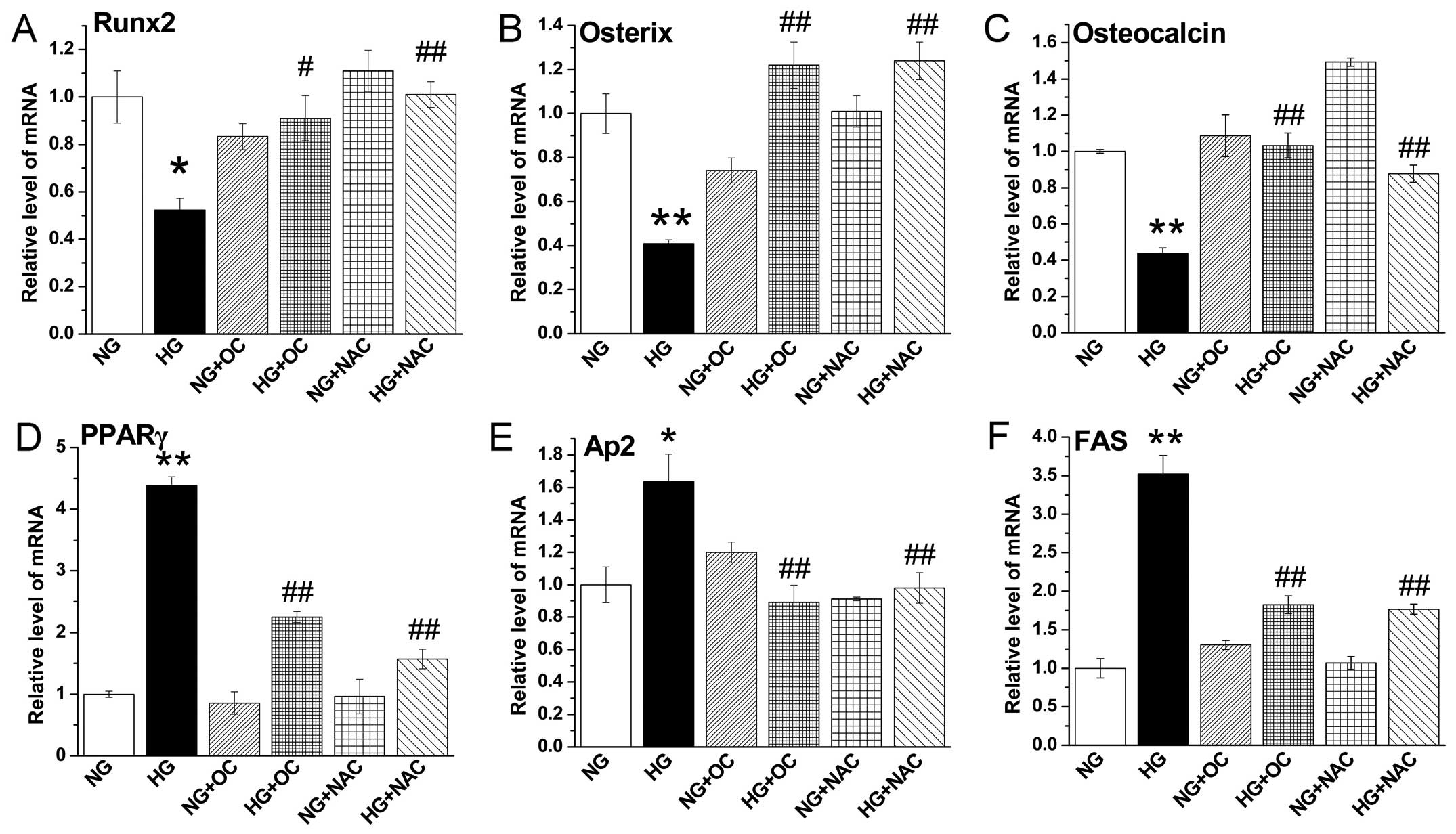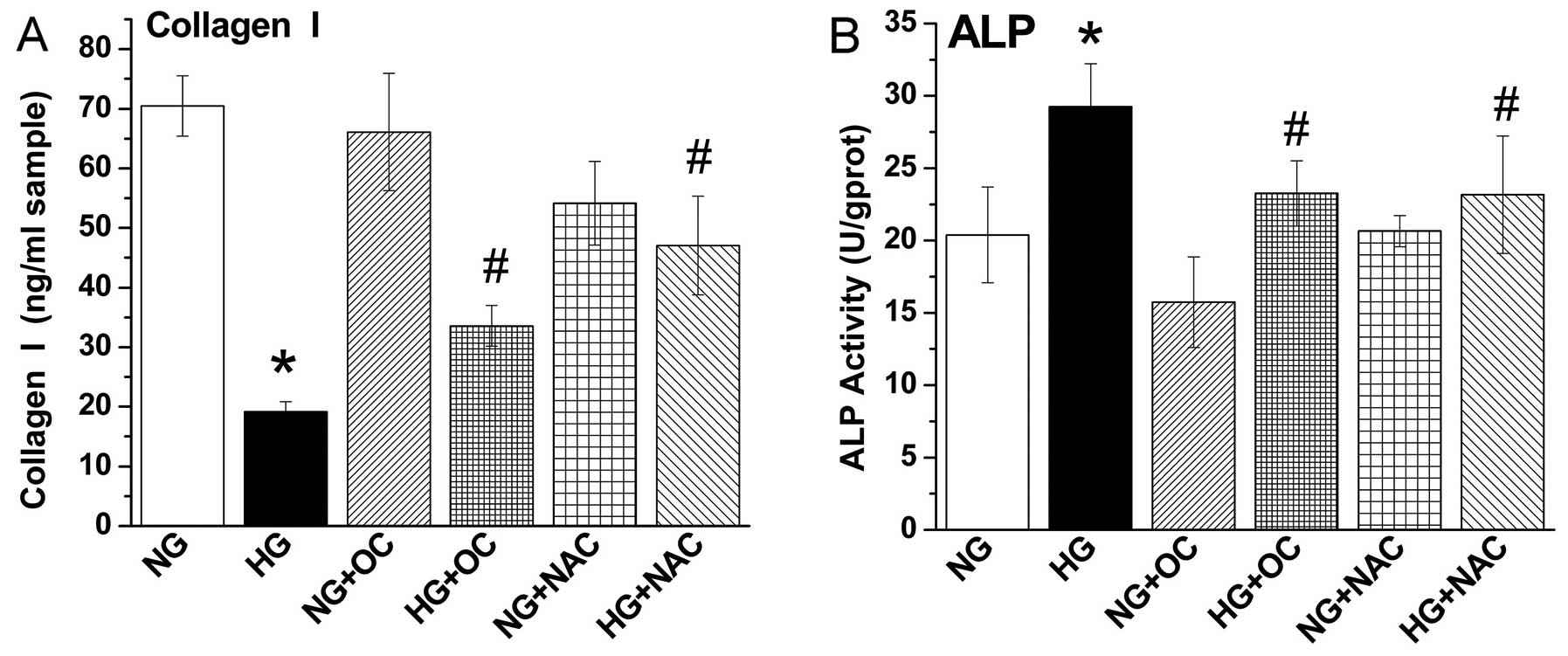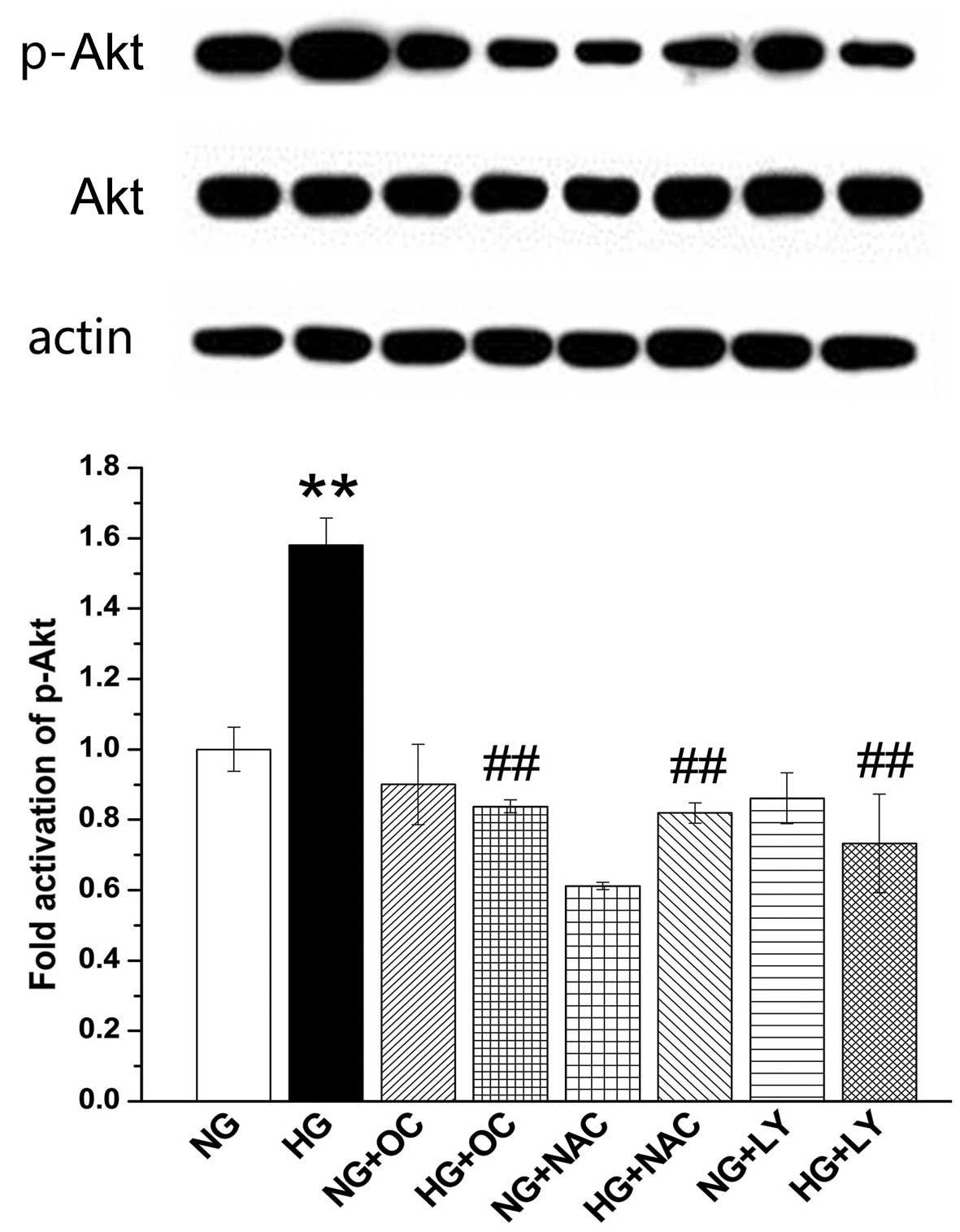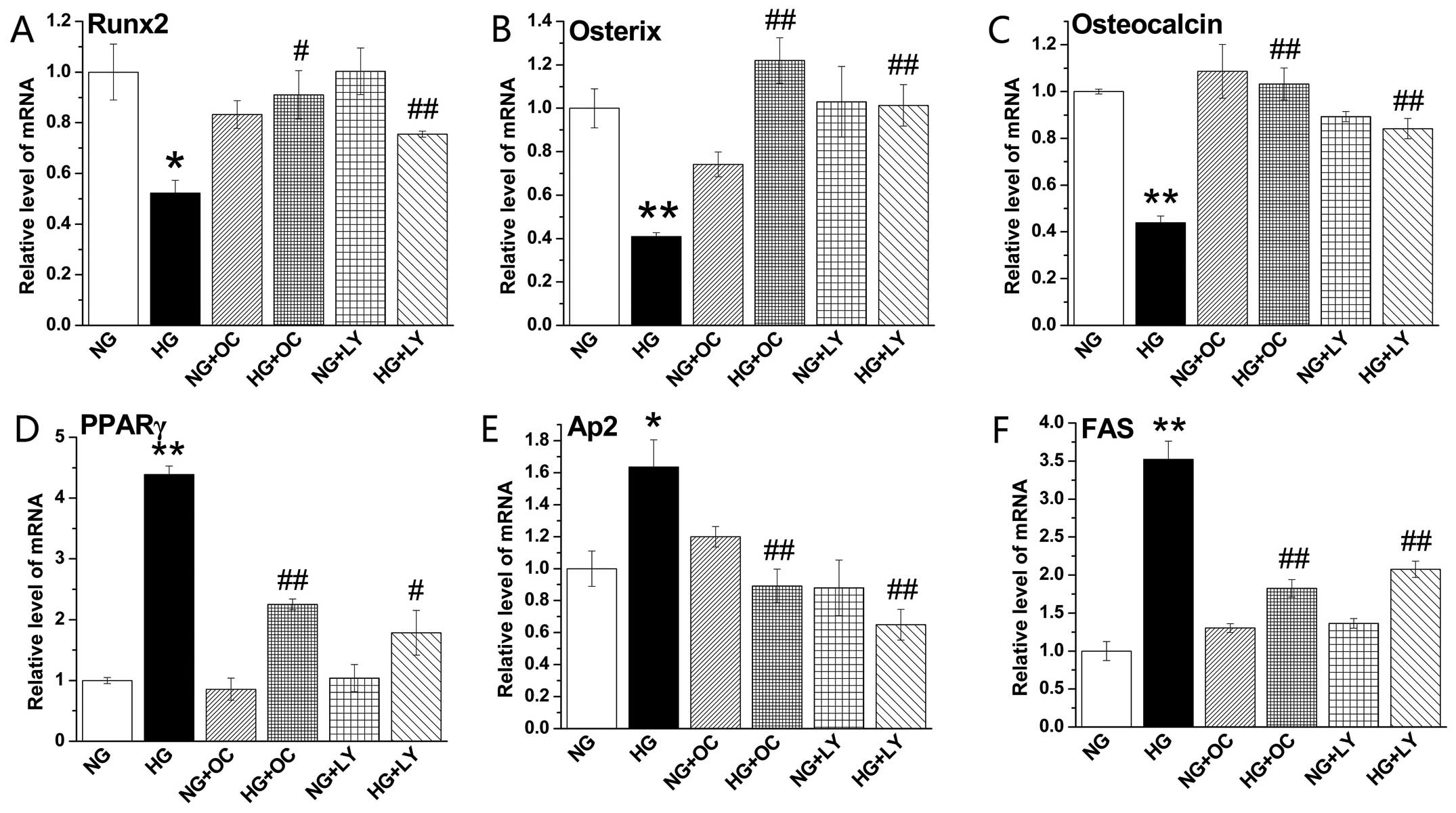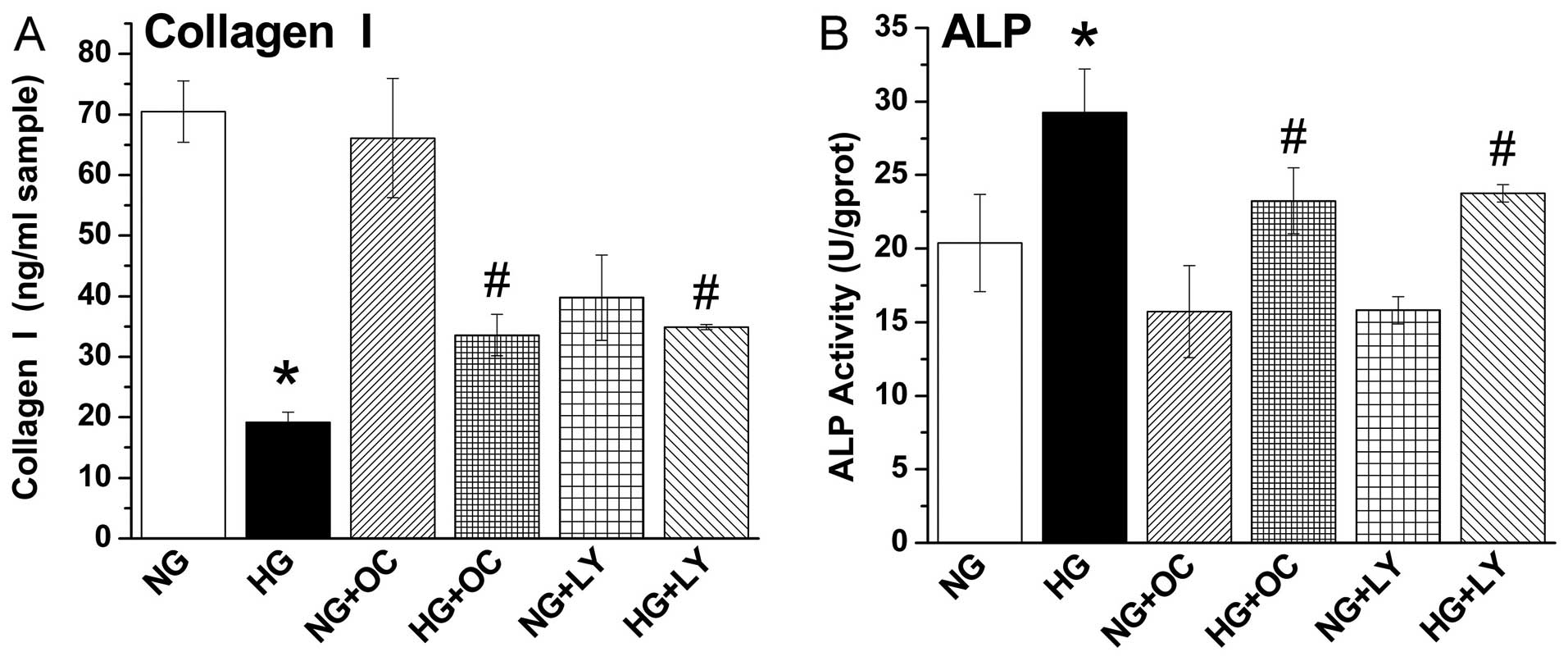|
1
|
Neve A, Corrado A and Cantatore FP:
Osteocalcin: skeletal and extra-skeletal effects. J Cell Physiol.
228:1149–1153. 2013. View Article : Google Scholar
|
|
2
|
Hoang QQ, Sicheri F, Howard AJ and Yang
DSC: Bone recognition mechanism of porcine osteocalcin from crystal
structure. Nature. 425:977–980. 2003. View Article : Google Scholar : PubMed/NCBI
|
|
3
|
Karsenty G, Kronenberg HM and Settembre C:
Genetic control of bone formation. Annu Rev Cell Dev Biol.
25:629–648. 2009. View Article : Google Scholar : PubMed/NCBI
|
|
4
|
Ducy P, Desbois C, Boyce B, Pinero G,
Story B, Dunstan C, Smith E, Bonadio J, Goldstein S, Gundberg C, et
al: Increased bone formation in osteocalcin-deficient mice. Nature.
382:448–452. 1996. View
Article : Google Scholar : PubMed/NCBI
|
|
5
|
Murshed M, Schinke T, McKee MD and
Karsenty G: Extracellular matrix mineralization is regulated
locally; different roles of two gla-containing proteins. J Cell
Biol. 165:625–630. 2004. View Article : Google Scholar : PubMed/NCBI
|
|
6
|
Dubois-Ferrière V, Brennan TC, Dayer R,
Rizzoli R and Ammann P: Calcitropic hormones and IGF-I are
influenced by dietary protein. Endocrinology. 152:1839–1847. 2011.
View Article : Google Scholar : PubMed/NCBI
|
|
7
|
Rutter MM, Markoff E, Clayton L, Akeno N,
Zhao G, Clemens TL and Chernausek SD: Osteoblast-specific
expression of insulin-like growth factor-1 in bone of transgenic
mice induces insulin-like growth factor binding protein-5. Bone.
36:224–231. 2005. View Article : Google Scholar : PubMed/NCBI
|
|
8
|
Garnero P: Biomarkers for osteoporosis
management: utility in diagnosis, fracture risk prediction and
therapy monitoring. Mol Diagn Ther. 12:157–170. 2008. View Article : Google Scholar : PubMed/NCBI
|
|
9
|
Fukumoto S and Martin TJ: Bone as an
endocrine organ. Trends Endocrinol Metab. 20:230–236. 2009.
View Article : Google Scholar : PubMed/NCBI
|
|
10
|
Ferron M, McKee MD, Levine RL, Ducy P and
Karsenty G: Intermittent injections of osteocalcin improve glucose
metabolism and prevent type 2 diabetes in mice. Bone. 50:568–575.
2012. View Article : Google Scholar
|
|
11
|
Lee NK, Sowa H, Hinoi E, Ferron M, Ahn JD,
Confavreux C, Dacquin R, Mee PJ, McKee MD, Jung DY, et al:
Endocrine regulation of energy metabolism by the skeleton. Cell.
130:456–469. 2007. View Article : Google Scholar : PubMed/NCBI
|
|
12
|
Pi M, Wu Y and Quarles LD: GPRC6A mediates
responses to osteocalcin in β-cells in vitro and pancreas in vivo.
J Bone Miner Res. 26:1680–1683. 2011. View
Article : Google Scholar : PubMed/NCBI
|
|
13
|
Bodine PVN and Komm BS: Evidence that
conditionally immortalized human osteoblasts express an osteocalcin
receptor. Bone. 25:535–543. 1999. View Article : Google Scholar : PubMed/NCBI
|
|
14
|
Wellendorph P and Bräuner-Osborne H:
Molecular cloning, expression, and sequence analysis of GPRC6A, a
novel family C G-protein-coupled receptor. Gene. 335:37–46. 2004.
View Article : Google Scholar : PubMed/NCBI
|
|
15
|
Schwartz AV: Diabetes mellitus: does it
affect bone? Calcif Tissue Int. 73:515–519. 2003. View Article : Google Scholar : PubMed/NCBI
|
|
16
|
McCabe LR: Understanding the pathology and
mechanisms of type I diabetic bone loss. J Cell Biochem.
102:1343–1357. 2007. View Article : Google Scholar : PubMed/NCBI
|
|
17
|
Hamann C, Kirschner S, Günther KP and
Hofbauer LC: Bone, sweet bone - osteoporotic fractures in diabetes
mellitus. Nat Rev Endocrinol. 8:297–305. 2012. View Article : Google Scholar : PubMed/NCBI
|
|
18
|
Hayakawa N and Suzuki A: Diabetes mellitus
and osteoporosis. Effect of antidiabetic medicine on osteoporotic
fracture. Clin Calcium. 22:1383–1390. 2012.In Japanese. PubMed/NCBI
|
|
19
|
Motyl KJ, McCabe LR and Schwartz AV: Bone
and glucose metabolism: a two-way street. Arch Biochem Biophys.
503:2–10. 2010. View Article : Google Scholar : PubMed/NCBI
|
|
20
|
Thrailkill KM, Liu L, Wahl EC, Bunn RC,
Perrien DS, Cockrell GE, Skinner RA, Hogue WR, Carver AA, Fowlkes
JL, et al: Bone formation is impaired in a model of type 1
diabetes. Diabetes. 54:2875–2881. 2005. View Article : Google Scholar : PubMed/NCBI
|
|
21
|
Hamann C, Goettsch C, Mettelsiefen J,
Henkenjohann V, Rauner M, Hempel U, Bernhardt R, Fratzl-Zelman N,
Roschger P, Rammelt S, et al: Delayed bone regeneration and low
bone mass in a rat model of insulin-resistant type 2 diabetes
mellitus is due to impaired osteoblast function. Am J Physiol
Endocrinol Metab. 301:E1220–E1228. 2011. View Article : Google Scholar : PubMed/NCBI
|
|
22
|
Zhang Y and Yang JH: Activation of the
PI3K/Akt pathway by oxidative stress mediates high glucose-induced
increase of adipogenic differentiation in primary rat osteoblasts.
J Cell Biochem. 114:2595–2602. 2013. View Article : Google Scholar : PubMed/NCBI
|
|
23
|
Wang W, Zhang X, Zheng J and Yang J: High
glucose stimulates adipogenic and inhibits osteogenic
differentiation in MG-63 cells through cAMP/protein kinase
A/extracellular signal-regulated kinase pathway. Mol Cell Biochem.
338:115–122. 2010. View Article : Google Scholar
|
|
24
|
Movahed A, Larijani B, Nabipour I,
Kalantarhormozi M, Asadipooya K, Vahdat K, Akbarzadeh S, Farrokhnia
M, Assadi M, Amirinejad R, et al: Reduced serum osteocalcin
concentrations are associated with type 2 diabetes mellitus and the
metabolic syndrome components in postmenopausal women: The
crosstalk between bone and energy metabolism. J Bone Miner Metab.
30:683–691. 2012. View Article : Google Scholar : PubMed/NCBI
|
|
25
|
Zhou M, Ma X, Li H, Pan X, Tang J, Gao Y,
Hou X, Lu H, Bao Y and Jia W: Serum osteocalcin concentrations in
relation to glucose and lipid metabolism in Chinese individuals.
Eur J Endocrinol. 161:723–729. 2009. View Article : Google Scholar : PubMed/NCBI
|
|
26
|
Kim JH, Park S, Kim HW and Jang JH:
Recombinant expression of mouse osteocalcin protein in Escherichia
coli. Biotechnol Lett. 29:1631–1635. 2007. View Article : Google Scholar : PubMed/NCBI
|
|
27
|
Harada S and Rodan GA: Control of
osteoblast function and regulation of bone mass. Nature.
423:349–355. 2003. View Article : Google Scholar : PubMed/NCBI
|
|
28
|
Teitelbaum SL and Ross FP: Genetic
regulation of osteoclast development and function. Nat Rev Genet.
4:638–649. 2003. View
Article : Google Scholar : PubMed/NCBI
|
|
29
|
Boskey AL, Gadaleta S, Gundberg C, Doty
SB, Ducy P and Karsenty G: Fourier transform infrared
microspectroscopic analysis of bones of osteocalcin-deficient mice
provides insight into the function of osteocalcin. Bone.
23:187–196. 1998. View Article : Google Scholar : PubMed/NCBI
|
|
30
|
Poundarik A, Gundberg C and Vashishth D:
Non-collageneous proteins influence bone mineral size, shape and
orientation: a SAXS study. J Bone Miner Res. 26(Suppl):
S362011.
|
|
31
|
Zhen D, Chen Y and Tang X: Metformin
reverses the deleterious effects of high glucose on osteoblast
function. J Diabetes Complications. 24:334–344. 2010. View Article : Google Scholar
|
|
32
|
Fujimori S, Osawa M, Iemata M, Hinoi E and
Yoneda Y: Increased GABA transport activity in rat calvarial
osteoblasts cultured under hyperglycemic conditions. Biol Pharm
Bull. 29:297–301. 2006. View Article : Google Scholar : PubMed/NCBI
|
|
33
|
Koh JM, Lee YS, Kim YS, Kim DJ, Kim HH,
Park JY, Lee KU and Kim GS: Homocysteine enhances bone resorption
by stimulation of osteoclast formation and activity through
increased intracellular ROS generation. J Bone Miner Res.
21:1003–1011. 2006. View Article : Google Scholar : PubMed/NCBI
|
|
34
|
Bai XC, Lu D, Liu AL, Zhang ZM, Li XM, Zou
ZP, Zeng WS, Cheng BL and Luo SQ: Reactive oxygen species
stimulates receptor activator of NF-kappaB ligand expression in
osteoblast. J Biol Chem. 280:17497–17506. 2005. View Article : Google Scholar : PubMed/NCBI
|
|
35
|
Lee NK, Choi YG, Baik JY, Han SY, Jeong
DW, Bae YS, Kim N and Lee SY: A crucial role for reactive oxygen
species in RANKL-induced osteoclast differentiation. Blood.
106:852–859. 2005. View Article : Google Scholar : PubMed/NCBI
|
|
36
|
Wittrant Y, Gorin Y, Woodruff K, Horn D,
Abboud HE, Mohan S and Abboud-Werner SL: High d(+)glucose
concentration inhibits RANKL-induced osteoclastogenesis. Bone.
42:1122–1130. 2008. View Article : Google Scholar : PubMed/NCBI
|
|
37
|
Wauquier F, Leotoing L, Coxam V, Guicheux
J and Wittrant Y: Oxidative stress in bone remodelling and disease.
Trends Mol Med. 15:468–477. 2009. View Article : Google Scholar : PubMed/NCBI
|
|
38
|
Liu AL, Zhang ZM, Zhu BF, Liao ZH and Liu
Z: Metallothionein protects bone marrow stromal cells against
hydrogen peroxide-induced inhibition of osteoblastic
differentiation. Cell Biol Int. 28:905–911. 2004. View Article : Google Scholar : PubMed/NCBI
|
|
39
|
Chuang CC, Yang RS, Tsai KS, Ho FM and Liu
SH: Hyperglycemia enhances adipogenic induction of lipid
accumulation: involvement of extracellular signal-regulated protein
kinase 1/2, phosphoinositide 3-kinase/Akt, and peroxisome
proliferator-activated receptor gamma signaling. Endocrinology.
148:4267–4275. 2007. View Article : Google Scholar : PubMed/NCBI
|















